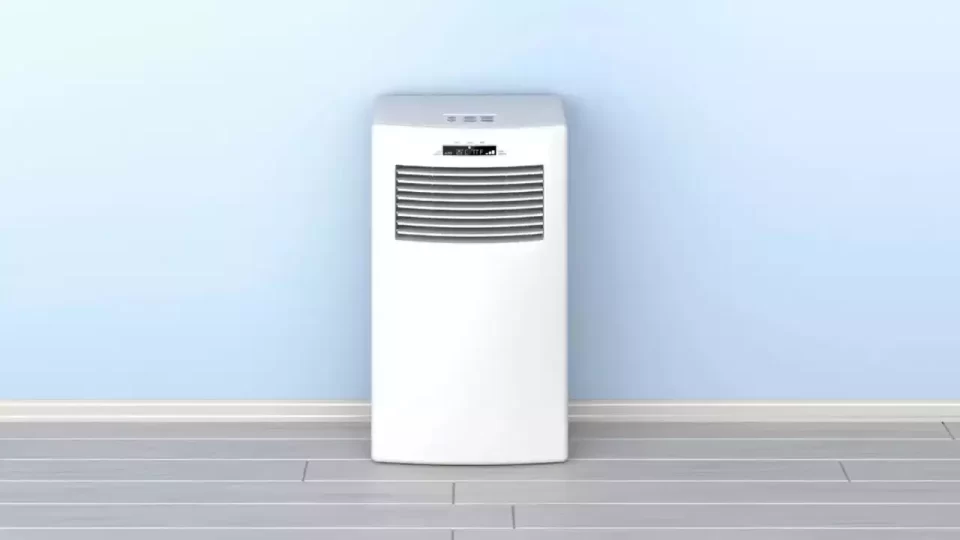Now more than ever, with the warm weather and heat waves that can peak during certain times of year, having a portable AC Unit in your home is becoming increasingly popular.
While they are known for their cooling capabilities, it should not be overlooked that these units also have an efficient dehumidification feature.
Not only does this benefit the comfort level of your living space, but it can also help mitigate the effects of mold and other moisture-related issues in locations such as basements, bathrooms, etc.
By understanding how to use your Portable AC Unit efficiently, you will maximize its ability both for cooling and dehumidification. Read on to learn all about Portable AC units for efficient dehumidification!
What is dehumidification, and Why is it Important in Home environments?
Dehumidification refers to the process of reducing the moisture level in the air. It plays an important role in maintaining a healthy and comfortable home environment.
High humidity levels can lead to the growth of mold, mildew, and other harmful allergens, which can cause health problems such as respiratory issues and allergies.
In addition, excessive humidity can cause damage to furniture, walls, and other household items. By reducing the humidity levels, dehumidification helps to regulate the temperature and improve indoor air quality, making the home a more pleasant and habitable place to live.
It is important to ensure that your home is equipped with a reliable dehumidification system to maintain a healthy living environment for you and your family.
Different types of Portable AC Units
As the summer heat approaches, the need for reliable and effective cooling solutions becomes increasingly important.
For those living in small apartments or homes or those who simply don’t want to deal with the hassle of installing a central air conditioning system, portable AC units are a great option.
But with so many types and models available on the market, it can be overwhelming to choose the right one for your space. From window units to evaporative coolers to split systems, each type of portable AC unit has its benefits and drawbacks.
It’s important to consider factors such as room size, energy efficiency, and noise levels when making your decision. With the right research and a clear understanding of your specific needs, you can select the perfect portable AC unit to keep you cool and comfortable all summer.
How to Properly Install a Portable AC Unit
As we head into the warmer months, many of us are considering the installation of a portable air conditioning unit. While these units are a terrific way to cool a room without the need for a traditional air conditioning system, there are a few things to consider when it comes to their installation.
Firstly, it is important to make sure the unit is placed on a flat and stable surface. Secondly, ensure that the unit is near an electrical outlet and that the cord is securely plugged in. Thirdly, make sure that the exhaust hose is fitted properly and that it is not obstructed in any way.
By following these steps, you can be confident that your portable air conditioning unit will be working efficiently and effectively, even on the hottest days of summer.
Commonly Asked Questions about Portable AC Units
Portable AC units have become increasingly popular in recent years, offering a convenient and affordable way to cool a room or small space. However, many people have questions about these devices and how they work.
Some of the most commonly asked questions include: How much space can a portable AC unit cool? How much noise do they make? Can they be used in rooms without an external window? Are they energy-efficient?
By addressing these questions and providing accurate information, individuals can make informed decisions about whether a portable AC unit is right for their cooling needs.
Best Practices for Maintaining Your Portable AC Unit
When it comes to maintaining your portable AC unit, there are several best practices that can help keep your unit running smoothly. Firstly, it’s essential to clean the filter regularly. A dirty filter can restrict airflow and reduce cooling efficiency.
Additionally, pay attention to the condenser coils and clean them as needed to prevent dust and debris buildup. It’s also crucial to keep the AC unit in a cool and dry location to prevent condensation buildup.
Finally, make sure to turn off the unit and unplug it when not in use. By following these best practices, you can ensure that your portable AC unit stays in top condition and continues to cool your space effectively.
A portable AC unit can be an incredibly useful device for cooling a room or even a whole home. Taking these into account will help ensure you benefit from maximum comfort at minimal cost.

